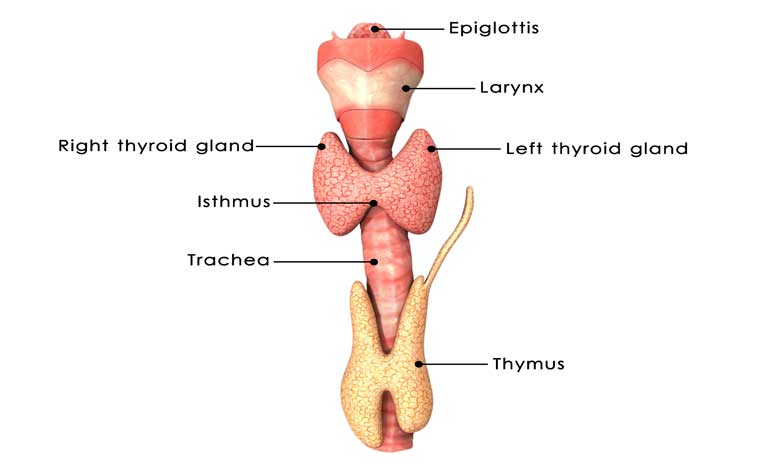
Hyperthroidism occurs when the thyroid glands produce too much thyroid hormones.
What is hyperthyroidism?
Hyperthyroidism refers to overactivity of the thyroid gland. It is also known as “thyrotoxicosis”. In this condition, the thyroid gland produces too much thyroid hormone."This may cause a “speeding up” of many bodily functions," say doctors from the Department of Endocrinology at Singapore General Hospital (SGH), a member of the SingHealth group.
Causes of hyperthyroidism
Graves’ disease
- This is the most common cause of hyperthyroidism. It is an autoimmune disease, or 'self-attacking-self' disease. This means that proteins (antibodies) produced by our own white blood cells overstimulate the thyroid gland to produce too much thyroid hormone. The antibody which causes this is called TSH receptor antibody, or TRAb
- (Above, Figure 2) In some patients, TRAb may also cause swelling of the muscles and other tissues around the eyes, causing the eyes to appear more prominent.
Toxic multinodular goiter
Multiple nodules can develop in the thyroid gland, especially as we age. Some of these nodules may produce excessive thyroid hormone, causing hyperthyroidism.
Toxic nodule
A single thyroid nodule may also produce excessive thyroid hormone and hyperthyroidism.
Excessive iodine ingestion
Some sources of high iodine concentrations, eg. drugs like amiodarone may sometimes cause hyperthyroidism in certain patients.
Symptoms of hyperthyroidism
Some symptoms and physical signs associated with hyperthyroidism include anxiety and nervousness, trembling hands, weight loss, constantly feeling warm, frequent bowel movements and a fast heart rate. In women, menstrual periods may become irregular. In patients with Graves’ disease, the eyes may become more prominent. Hyperthyroidism is confirmed by performing a blood test which measures both your T4 and TSH levels. In hyperthyroidism, your T4 level would be high, and the TSH level would be very low.
Did you know?
- Graves’ disease is named after a doctor called Robert Graves, and does not mean that your condition is grave or very serious.
- Graves’ disease affects women five times more commonly than men.
- Hyperthyroidism can run in families.
Ref: V10
Contributed by















